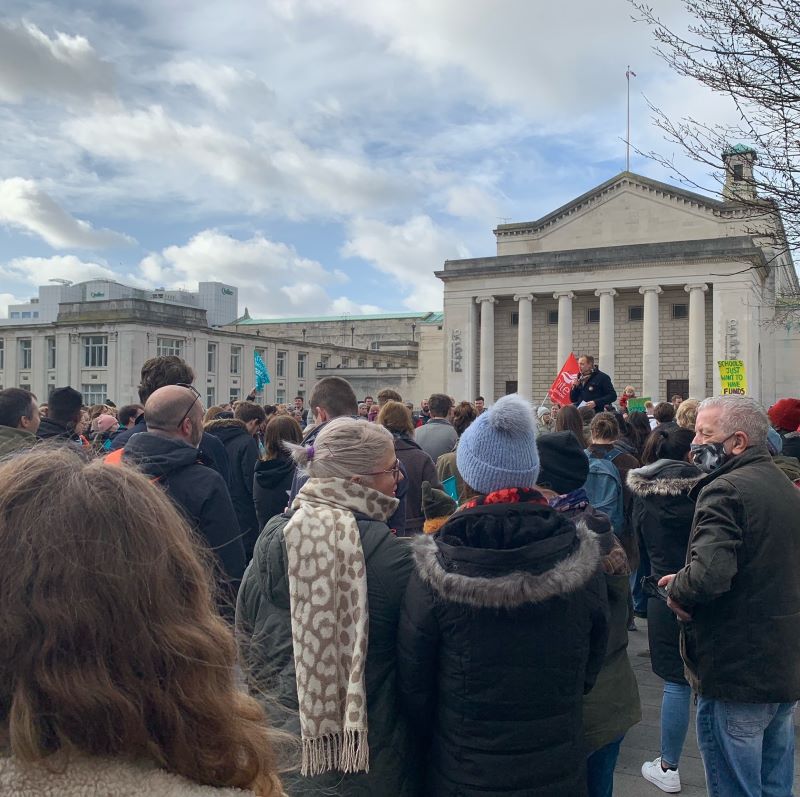by Charlie Hislop.
Today (February 1) saw the largest strike day in this country for many years, and certainly in the recent wave of unrest over pay, the cost of living, the condition of the country’s public services, and the government’s clampdown on the rights of workers to take action. It’s estimated that half a million people were striking today. Those on strike included firefighters, teachers, university and college lecturers and tutors, railway workers, civil servants, security guards and train drivers.
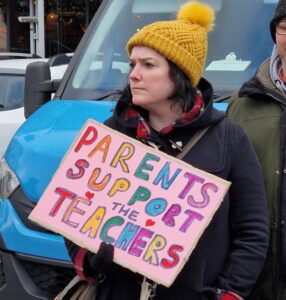
In Southampton many schools were closed, trains cancelled, and services shut, while Southampton & South West Hampshire Trades Union Council brought a number of unions together to a rally in the Guildhall Square. Banners from Unite, the GMB, Unison, the National Education Union and the University and College Union (UCU) decorated the square as around 500 people listened to speeches and kept warm to the sound of a samba band.
One clear demand of both the teacher and health worker campaigns is not only for investment in services – buildings, equipment, training and staff numbers, but also properly funded pay settlements for staff. Previous pay settlements offered by the government have relied on schools or health trusts finding the money through cuts. Last week’s commitment to increase the number of ambulances by 800 comes at the expense of cuts to other services. The government is also insisting on productivity increases as the price of a health service pay offer, even though the organisation of services, provision of equipment, the use of agency staff, are management issues beyond the control of staff.
One focus of the day’s action was the new law to remove the right to strike from public service workers and the imposition of ‘minimum service levels’ that would make it unlawful for some people to strike even if the strike was called in compliance with trade union legislation, which is already one of the most legally restrictive regimes in the world.
Councillor Darren Paffrey, the Labour Party’s prospective parliamentary candidate for Southampton Itchen, set out the Labour Party’s commitment to repeal the new law. Highlighting that there are half a million people on strike today, he foresaw more joining in the months to come.
“Curtailing our right to strike in defence of decent pay and pubic services will not end well for this government,” he said. “Enough is enough”. While Labour’s position on the current wave of strikes has been equivocal – supporting the right to strike but not the demand for proper levels of pay, Keir Starmer has said it will repeal this legislation if it takes office.

Satvir Kaur, the Leader of Southampton City Council and the Labour Party prospective parliamentary candidate for Southampton Test, told the crowd that she had been on a number of picket lines earlier in the day. She won cheers when she said “Keeping non-dom status that enables the rich to ship their money overseas and avoid tax is a choice the government is making. That money could be supporting our hard-working public services. The government has made a choice to cripple our public services – whether you are a teacher or a nurse, or work in services that were public and aren’t anymore.”
A heckler suggested that she should have a word with Keir Starmer about re-nationalisation of rail, water and energy because the polls show that that is the wish of a significant majority of the public, according to opinion polls.
Speakers from the University and College Union, UCU, highlighted the worsening conditions in universities where despite the high fees, the quality of education students receive is declining. Constant change, as the institutions try to make ends meet, is undermining what they offer. Breaks in service over the summer prevent many lecturers securing employment rights, there is widespread casualisation with staff on termly, monthly and even hourly contracts, where they are only paid for the direct contact time for students.
“I can’t plan for my life like that, but they don’t seem to care about that.” said one speaker.
How much the Government cares about public service workers was a theme in the speeches and the placards, many home-made. It’s continual emphasis on “hard-working taxpayers”, “school children” patients and commuters, relies on presenting teachers, nurses, lecturers, rail workers and other public servants as not caring, selfish and, of course, trade union strikers. However, it was clear at the rally they are people like everyone else, with lives, families, homes and mouths to feed, as well as a commitment to serve others.
Stickers demanded fair pay, but most of the sentiment and the speeches demanded proper investment in public services. “Children are the future, FUND THE FUTURE !” demanded one banner, while others proclaimed that “PARENTS SUPPORT THE TEACHERS.” What is clear is that while the strikes are disruptive, there is widespread public support, borne out by opinion polls and the ‘vox pop’ interviews in the media.
One speaker captured the feeling of many, stating, “ When a government cannot care for the sick, or isn’t interested in educating children for the future, it is time for it to go.”
- In Common is not for profit. We rely on donations from readers to keep the site running. Could you help to support us for as little as 25p a week? Please help us to carry on offering independent grass roots media. Visit: https://www.patreon.com/incommonsoton
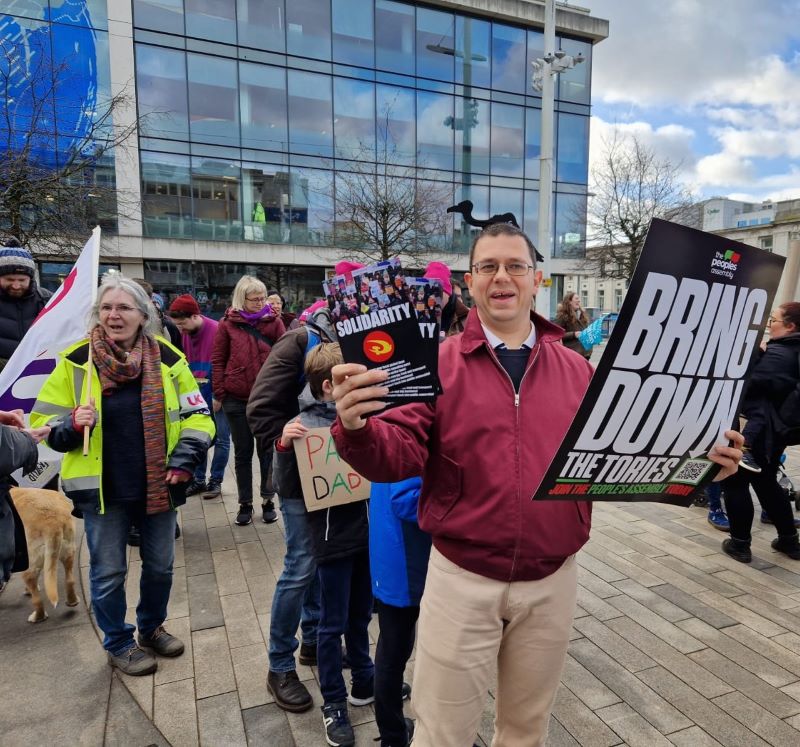
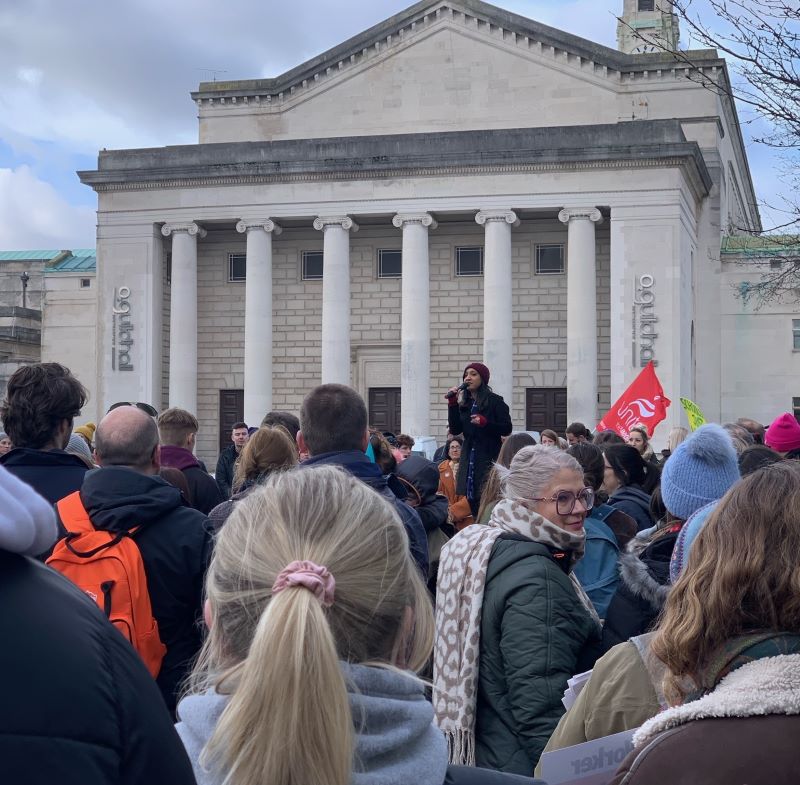
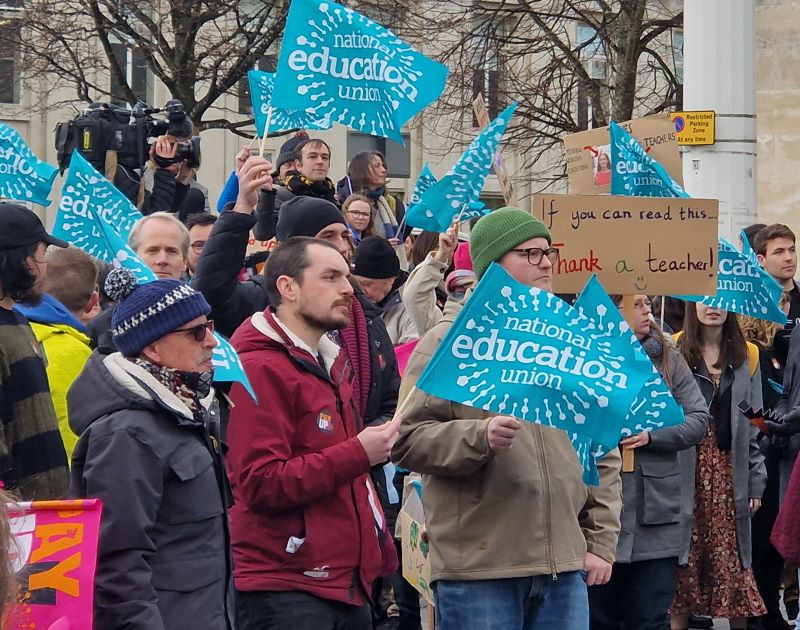
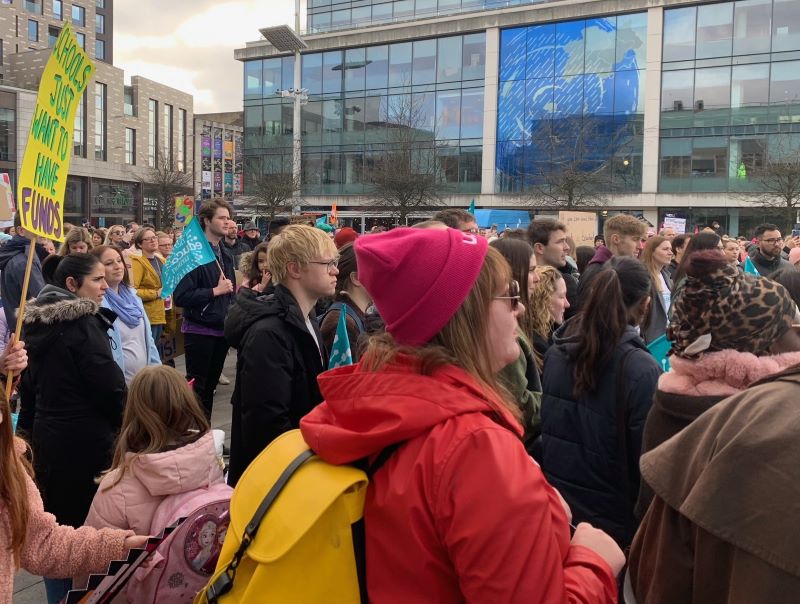
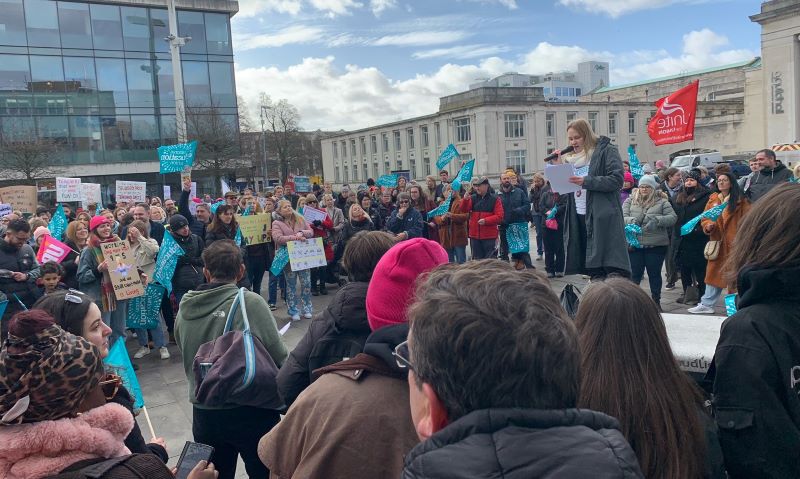
You may find these stories interesting:
Strike solidarity rally to be held in Southampton on Wednesday to coincide with country-wide strikes
Opinion: members of the University and College Union are striking – here’s why
Reader’s letter: NHS patients and staff are suffering – and the government are to blame

